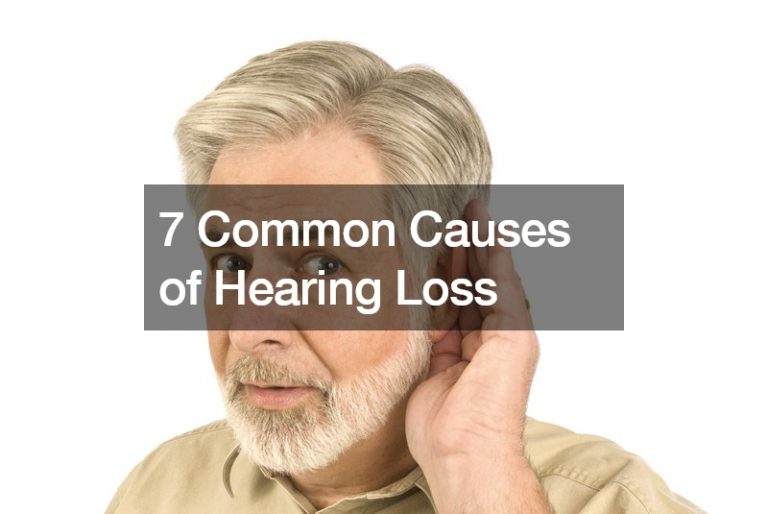Going to the doctor can be comforting for some, especially if they find out what’s causing their headache or why they can’t seem to shake that cold. These people can be relieving for people knowing the symptoms they’re experiencing can be treated or cured in no time. But for others, a trip to the doctor can be life-changing.
Some people would receive news that would forever change how they see themselves and their future. Chronic diseases are ongoing, usually lifelong, from manageable to debilitating conditions. The most common chronic diseases can be overwhelming to think about. Let alone live with day-to-day.
A diagnosis of a chronic disease can do that. Feeling scared, alone, and unsure of the future is normal. But it’s important to remember that you’re not alone and that there are ways to manage your feelings. If you or someone you know just received a chronic disease diagnosis, here are some ways to cope:
1. Talk to your doctor
Being diagnosed with a chronic disease can be a shock. After all, most of us assume that you will enjoy good health for many years to come. However, the reality is that chronic diseases are becoming increasingly common, affecting people of all ages. One of the most important things you can do is to talk to your doctor.
The first thing you should do is get as much information from a reliable source as possible. This will help you to understand your diagnosis and what it means for your health. It’s also important to ask questions if there is anything you’re unclear about.
Your primary care physician can also help you to develop a treatment plan and answer any questions you may have to put your mind at ease. So if you have been diagnosed with a chronic disease, don’t hesitate to reach out to your doctor for support.
2. Work with a supportive medical team
After talking with your doctor, developing a supportive relationship with your medical team is important. This can help you better manage your condition and understand your treatment options. A supportive medical team can give you the tools and resources you need to live a healthier life.
For example, you may be diagnosed with cancer. The next best thing you can do is enroll yourself in a caring cancer treatment facility that knows how to handle your situation best. This will be helpful for you and your family as it would make you worry less about your diagnosis. Or perhaps, you know someone who’s been diagnosed with diabetes. You can help them look for the best diabetes treatment center that can help them manage their condition.
Working with a supportive medical team is essential to dealing with a chronic disease diagnosis. If experts surround you, you’ll feel more confident managing your condition.

3. Get involved in a chronic disease community
A diagnosis of a chronic disease can be devastating. Not only is it a reminder of our mortality, but it can also lead to major lifestyle changes and a loss of independence. However, one silver lining to this dark cloud: by getting involved in a chronic disease community, you can learn to cope with your illness and even find joy in the face of adversity.
In a chronic disease community, you can find others who understand what you are going through and can offer support and advice. You can also learn about the latest treatments and advances in medical technology. Most importantly, however, you can find hope.
By meeting others dealing with the same challenges, you can remind yourself that you’re not alone in this fight and that there is reason to hope for a better future.
4. Create a support system
A chronic illness diagnosis can bring many changes and challenges in your life. From your diet to mobility, everything can be affected. And it’s not just the physical changes you must deal with, but also the emotional and mental ones.
Receiving a life-changing diagnosis can affect someone’s mental health and also the ones around them. This is why it’s important to have a support system to help you through the tough times. Whether it’s your family, friends, or a chronic disease community, having people to lean on can make all the difference.
If you feel like everything is too much to handle, don’t hesitate to ask for help. Let your loved ones know what you need and allow them to support you in any way they can. Seeking help from mental health professionals is also a great way to deal with the emotional challenges of living with a chronic disease.
5. Take care of yourself physically and emotionally
A chronic disease diagnosis can also mean making changes to your lifestyle. For example, you may need to start eating a healthier diet or exercise more. And while it can be tough to make these changes, it’s important to remember that they’re for your own good.
It’s also crucial to take care of your emotional health. A chronic illness can be overwhelming and lead to feelings of anxiety, depression, and isolation. Make sure to take time for yourself to relax and do things that make you happy. If you’re feeling down, don’t be afraid to reach out to the people who care for you.
Taking care of yourself physically and emotionally can help you manage your chronic disease and improve your quality of life.
Receiving a chronic disease diagnosis can cause mixed feelings, but there are ways to cope. You can manage your chronic disease and live a full life with the right support. The important thing is to take care of oneself as much as possible.






